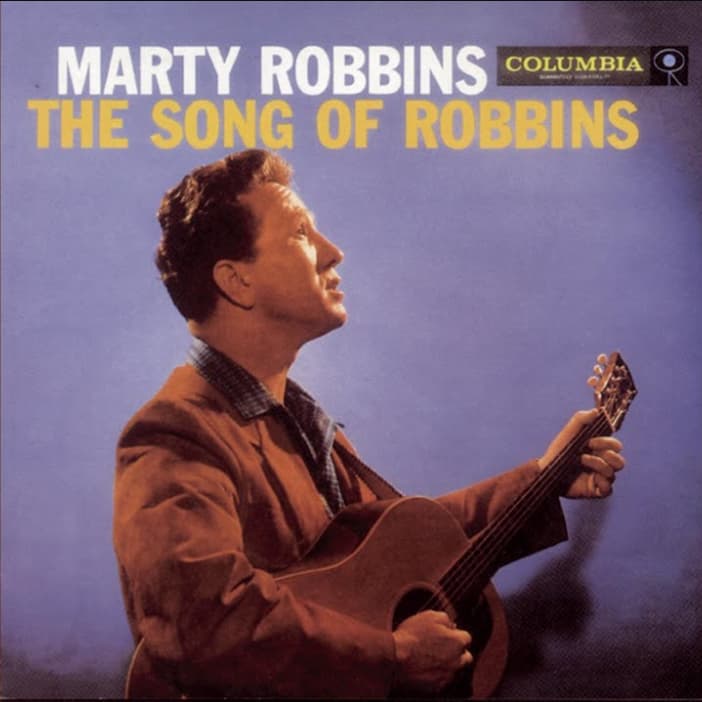
A Solitary Lament: The Agony of Lost Love and the Weight of Regret
Ah, the familiar voice of Marty Robbins, a craftsman of story and song, who could transport you with a gentle ballad as easily as with a thrilling frontier tale. Among his extensive discography, you’ll find the poignant lament, “I Hang My Head and Cry.” This isn’t one of the chart-topping mega-hits like “El Paso” that immediately springs to mind, but its emotional depth and honest portrayal of heartache ensure its enduring place in the hearts of those who appreciate the genuine soul of country music. Released by Robbins on his 1957 album, The Songs of Robbins, the song itself is a classic piece of the country-western catalog, initially penned by the masterful writing trio of Fred Rose, Gene Autry, and Ray Whitley. In an era when singles dominated the airwaves, this track, a lovely piece from an album, didn’t register a prominent spot on the major US pop or country singles charts at the time of its initial release, allowing it to remain a cherished deeper cut for the devoted listener.
The song’s essence lies in the purest, most relatable form of country sorrow: the agonizing realization that you’ve lost the one person who truly mattered, and the subsequent, crushing wave of regret. The lyrics paint a picture of a soul utterly consumed by loneliness and despair. The central image, encapsulated in the title, is the narrator physically withdrawing from the world, bowing his head in shame and sorrow because his actions or inactions have led to the end of a cherished relationship. He is left with only his memories and the stinging reality of a future spent alone. It’s a testament to the simplicity and power of classic country writing—no need for convoluted metaphor, just the plain, devastating truth of a broken heart.
For those of us who came of age with these timeless melodies, “I Hang My Head and Cry” is a mirror reflecting the universal pangs of youthful mistakes and mature recognition. Marty Robbins delivers the lines not with melodrama, but with a quiet, resigned ache that speaks volumes. It’s the sound of a man sitting alone at a kitchen table in the dark, the last embers of his pride long extinguished. The story isn’t one of a grand gunfight or an epic ride, but of the internal battle fought in the silence after the door has closed for the last time. It’s a song that understands that the deepest wounds are often self-inflicted, born of a failure to cherish what we had until it was gone.
When Robbins sings those familiar words, one can’t help but be taken back to a time of simpler arrangements, where the steel guitar wept and the vocalist was king, delivering a sentiment so raw it felt like a confession whispered just to you. It reminds us that no matter how much time passes, some sorrows are eternal, and sometimes, all a soul can do is hang his head and cry.